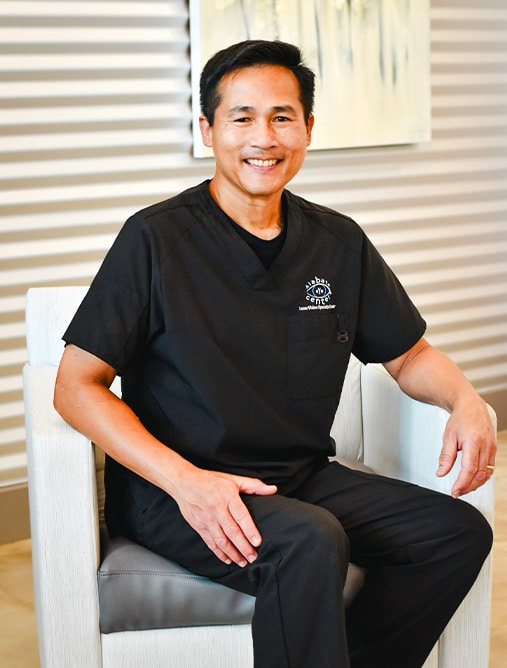Photorefractive Keratectomy (PRK)
About PRK
Refractive error is a common vision problem that occurs when the shape of the cornea prevents light from correctly focusing onto the retina. Photorefractive Keratectomy, or PRK, is an outpatient LASER VISION CORRECTION surgery that is used to correct refractive errors such as nearsightedness, farsightedness, and astigmatism.
During PRK surgery, an advanced excimer laser is used to reshape the cornea to properly correct your vision.

Learn More About PRK
Schedule now by completing this form or calling us at (850) 331-3937 to discuss with Dr. Phil Alabata if you are a candidate for PRK. A referral is not required.
